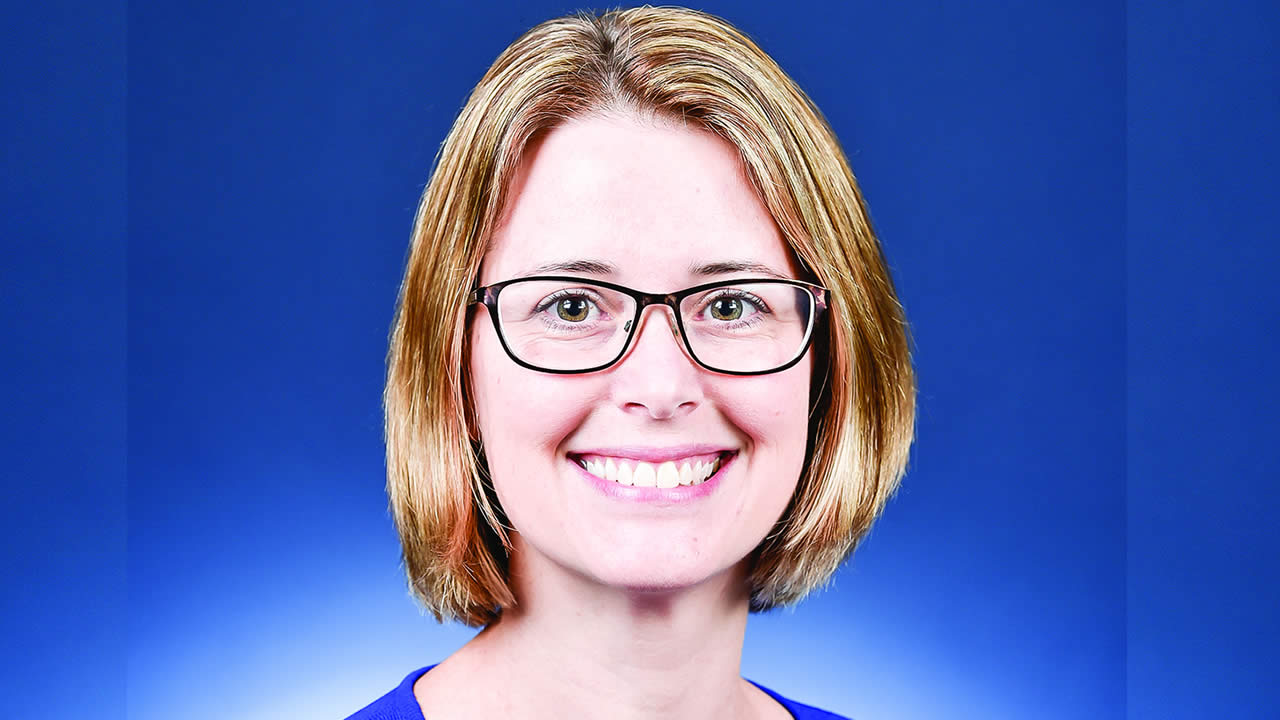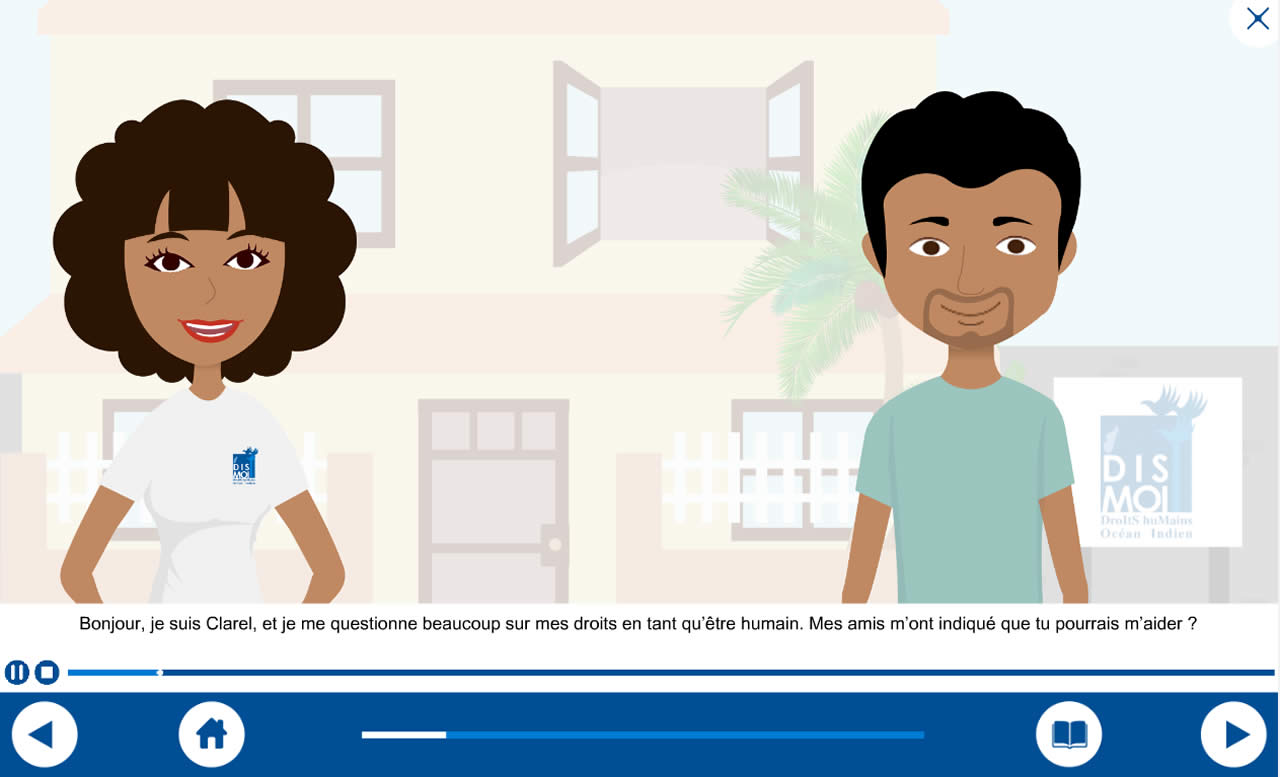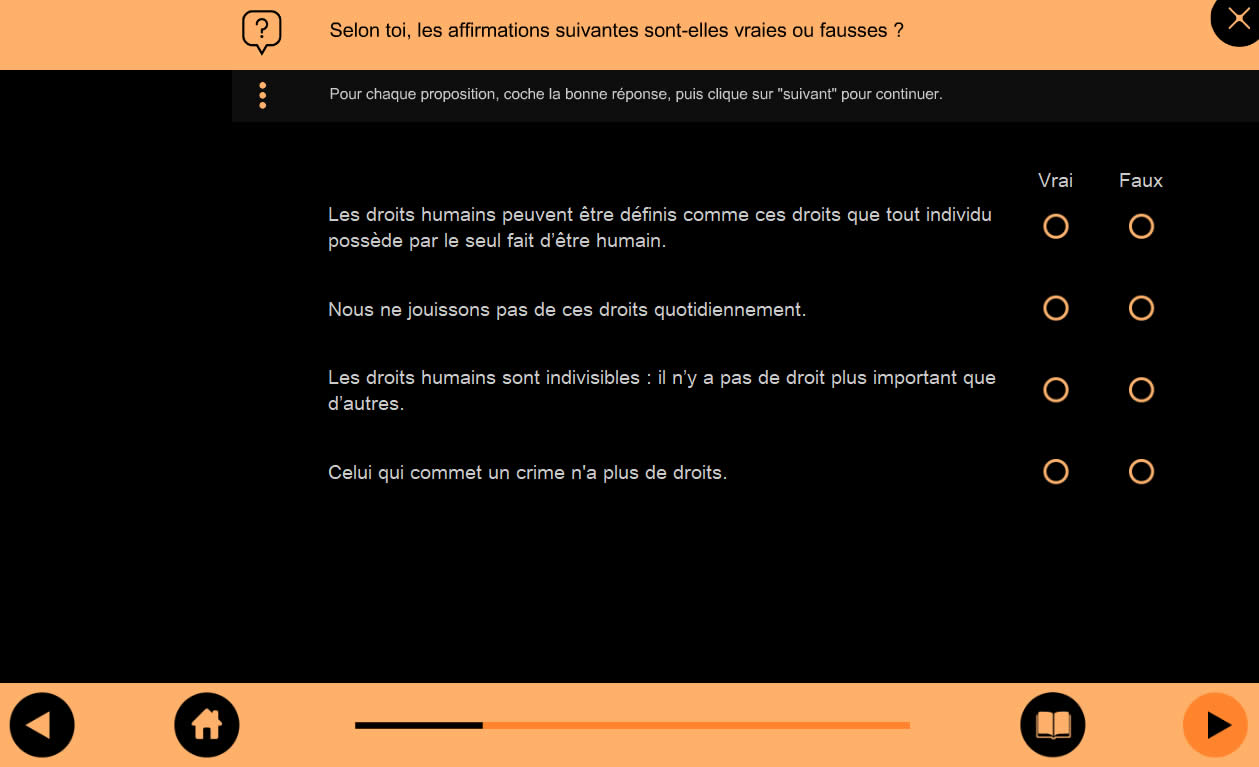
Lindley Couronne, Director of the regional Secretariat of Mauritius Dis-Moi, met the Australian High Commissioner for the South West Indian Ocean Region, Jenny Dee, to discuss about human rights education programme for Comoros, Madagascar, Seychelles and Mauritius. He then interviewed her and was most impressed by the progressive social values of the High Commissioner.
First of all the Defi electorate will be curious to know more about the human being behind the high official. Who is Jenny Dee ?
Putting my professional interest as a career diplomat and public policy specialist to one side, my outlook in life has been influenced strongly by my family in Australia. [My mother’s family immigrated to Australia after World War II and she pursued her tertiary education when I was a teenager ; while my father recalls stories of walking to school with no shoes and, in the land of opportunity, worked hard to eventually build a successful export business – he just retired this year at 80.] My passion for diplomacy springs from a love of learning about new cultures, people and places. As a family with my husband (who is Swiss originally) and two children, we enjoy travelling, challenging ourselves, and experiencing new things. With young daughters, we are a family of feminists and I am passionate about equal opportunity and rally against gender stereotypes (my husband and I share parenting and household roles equally ; plus he is a much better cook). I need to spend more time on my hobbies – I love music (all kinds), am a social sports person (team sports are more fun !) and prefer summer beach to winter snow where I can relax and read – so Mauritius is a perfect location and I am learning scuba-diving. I feel very honoured to be in this role, to build on the agenda of my successors, and have the opportunity to work with a wonderful team at the High Commission to pursue Australia’s interests and build stronger partnerships with Government, private sector and non-government stakeholders in the western Indian Ocean region.
Australia is presently sitting at the human rights council at the UN. Can you tell us why is it important for your country to have a seat in this important onusian organ ?
Australia believes that human rights underpin global peace and prosperity. Australia’s 2017 Foreign Policy White Paper affirms our commitment to a strong multilateral human rights system including the UN Human Rights Council (HRC). Australia’s experience is that building fundamental human rights and freedom into the fabric of society makes us all safer, more prosperous and more secure.
The HRC is the world’s peak body for protecting human rights. We were proud to take up our HRC seat on 1st January this year (for a three year term), after being elected by an overwhelming majority of UN member states. Membership enables us to contribute to shaping the international community’s response to some of the world’s most pressing human rights issues.
Australia’s commitment to international human rights reflects national values that are deeply embedded in Australian society and our respect for democracy and the rule of law. It also underpins the way we have always engaged with the international community — with active, practical advocacy, sensitivity and fairness, and a willingness to speak out against human rights violations and abuses.
How has Australia evolved as a country which respects human rights ? And why are human rights crucial for the world at large ?
Australia’s commitment to human rights reflects our national values and is an underlying principle of Australia’s engagement with the international community. It is in Australia’s national interest to protect and promote human rights, uphold the international rules based order and shape the work of the United Nations.
As a founding member of the United Nations, and one of only eight nations involved in the drafting of the Universal Declaration on Human Rights, Australia maintains the view that human rights deliver peace, security and prosperity to Australia and the world. Australia continues to be a leading proponent of the consistent and comprehensive implementation of the Universal Declaration on Human Rights.
Australia strongly believes in good governance, the rule of law and strong institutions and the Government regularly reviews its laws to ensure that they remain reasonable, necessary and proportionate with respect to limitations of rights. The rule of law underpins the way Australian society is governed. Everyone, including citizens and the government, is bound by, and entitled to, the benefit of laws. We advance the rule of law internationally by actively promoting adherence to the global rules-based system and helping to build effective governance and stable institutions.
Domestically, our national human rights institution, the Australian Human Rights Commission educates and informs the Australian people about human rights and inclusion, investigates alleged violations of human rights, and works with the government to improve human rights protections.
We have recently witnessed in Mauritius in the Gay Pride issue that human rights may conflict with culture. Our stand in Dis-Moi is that the rule of law always is superior to culture and religion. What are your views on this ?
Australia believes that human rights are universal, and that all people are entitled to respect, dignity and legal protection regardless of their sexual orientation or gender identity.
Australia advocates strongly for non-discrimination for and non-violence towards LGBTI persons globally, because the lived reality for many in this community is not one of equal rights and treatment, but instead often charactered by consistently higher levels of discrimination and violence globally, compared to the general population.
Australian federal law contains express prohibitions against discrimination of LGBTI individuals. Each state and territory has also enacted anti-discrimination legislation. Individuals can lodge complaints about discrimination, harassment and bullying at the state and territory level depending upon the circumstances of the complaint with the relevant agency in that state or territory.
Australia has been accused by the international community of ill-treating its Aborigines. How has that situation evolved with time ?
Indigenous people in Australia are the custodians of one of the oldest continuous living cultures in the world. Indigenous cultures are diverse and strong and make a vital contribution to Australia’s national identity through contributions in many areas including the arts, media, academia, politics, sport and business.
A national referendum, held on the 27th May 1967, removed references from the Australian Constitution that discriminated against Indigenous people, recognised Indigenous people in the census and enabled the Commonwealth to make laws specifically for Aboriginal and Torres Strait Islander people. Over 90 % of Australians voted for the change. The referendum and the High Court decision on the 3rd June 1992 that recognised native title and Indigenous people entitlements to possession, occupation, use and enjoyment of their traditional lands, are important milestones in Australian history.
In 2008, the Australian Parliament passed a motion of Apology to Australia’s Indigenous People for past mistreatment and injustices, especially the Stolen Generations, who were Indigenous children forcibly removed from their families.
The Australian Government has prioritised working in partnership with Aboriginal and Torres Strait Islander people to improve health, education and employment outcomes and economic development.
The Australian High Commission apart from its global mission in Mauritius works also on the Comoros, the Seychelles and Madagascar. What is your vision of the South West Indian Ocean region Jenny Dee ?
Australia’s links with the South West Indian Ocean region go back centuries, including historical trading routes and colonial linkages. Today, the region is of growing importance to all nations, in terms of being a conduit for global trade and because of its strategic significance. It is in all our interests to support regional cooperation, promote human rights and regional norms, and build regional capacity to ensure stability and security. Australian defence personnel are active in maritime security efforts under the auspices of the Combined Maritime Forces and are working hard to combat transnational crime in the Indian Ocean, including drug trafficking.
Australia is committed to advancing regional security and prosperity based on inclusive and sustainable economic development.
We are pleased to be supporting the work of key organisations including IORA and IOC that are integral to progress in the Indian Ocean. Our engagement with regional countries and communities focuses on building human capacity through our flagship Australia Awards scholarship program, supporting strong and resilient institutions and NGOs, including the delivery of programs to reduce poverty and support the most vulnerable, and promoting good governance. Our economic diplomacy agenda focuses on building stronger business linkages between Australia and the region, including recognition of Mauritius as a regional hub, with a focus on the blue economy, education, finance, tourism and extractives sectors.
Australia is a strong advocate for women’s economic empowerment, including through IORA. The Embassy’s community grants program has supported a Coaching and Mentoring Programme for Women Entrepreneurs in Mauritius (Rodrigues), Madagascar, Comoros and Seychelles, launched during the IORA Women’s Economic Empowerment Conference held in Seychelles in 2016. This year our development programs are helping encourage women participation in politics in Comoros and provide capacity building to women in the artisanal and small-scale mining sector in Madagascar. In Mauritius, we have also worked closely with the Gender Ministry, the police, emergency services, the judiciary and local NGOs on the issue of gender based violence.
Your country has accepted to finance a human rights education project for Dis-Moi, a human rights organisation which has as short term objective to create local Dis-Moi branches in the region. Why has this project interested your country ?
This project was of particular interest because one of the priority areas of the High Commission’s Direct Aid Program is to support human rights and Dis-Moi’s project had a regional focus to promote human rights across all four countries of accreditation of the High Commiss-ion – Mauritius, Madagascar, Comoros and Seychelles. Inclusiveness is also an important aspect of the Direct Aid Program and we are pleased that Dis-Moi is prioritising women and people with disabilities amongst its beneficiaries.
Anything you wish to add which has not been broached in our interview ?
The High Commission is pleased to be partnering with Dis-Moi to promote human rights education in the region, using on-line systems and collaborative tools. An active civil society is an important pillar of functioning democracies and we are looking forward to launching this project in Mauritius, Madagascar, Comoros and Seychelles who are already collaborating with each other in various forums. We hope this project helps support and strengthen links with civil society in the region and reinforces their capacity to address human rights issues.
L’Australie finance un grand projet de droits humains


Le parcours comprend huit modules interactifs de 10 minutes basés sur les techniques de neuropégagogie. « Les techniques qui visent à s’assurer que l’apprenant retienne un minimum d’informations », explique Astrid Bauwens de Learnbox Ltd. Les modules incluent des animations, des questionnaires, des voix off.
Droits Humains Océan Indien (DIS-MOI) lance son programme d’éducation aux droits humains en ligne pour les citoyens malgaches, comoriens, mauriciens et seychellois. La cérémonie se tiendra, le samedi 23 juin, à 10heures à l’Hôtel St Georges, à Port-Louis et sera honorée de la présence du Président de la République par intérim, Son Excellence Mr Paramasivum Pillay Vyapoory, GOSK et du Haut Commissaire de l’Australie, Son Excellence Mme Jenny Dee.
DIS-MOI, Organisation internationale non gouvernementale basée à Maurice, a pour mission de promouvoir, à l’échelle régionale à Maurice, aux Comores, à Madagascar et aux Seychelles, les droits de l’homme tels qu’énoncés dans la Charte Africaine des droits de l’homme et des peuples (1986) et la Déclaration Universelle des droits de l’homme (1948).
Le projet South West Indian Ocean est une formation en ligne concernant l’éducation aux droits humains pour les pays du sud-ouest de l’océan Indien. Il touchera 50 citoyens Malgaches, 50 Comoriens, 50 Seychellois et 50 Mauriciens et s’échelonnera jusqu’à la mi-2019.
Programme financé par le gouvernement australien, il consistera en un mois de cours, un stage dans une association de leur choix et un séminaire résidentiel animé par les formateurs de Dis-Moi. La société Learnbox abritera la plateforme de formation en ligne pour les 200 citoyens.
La cérémonie verra aussi par la participation de l’Ombudsperson for Children’s, Mrs Rita Venkatasawmy, du Directeur des poursuites publiques Mr Satyajit Boolell SC, du ministre de la justice Maneesh Gobin, et du maire de Mutsamudu, principale ville d’Anjouan (Comores), Mr Amirdine Mohamed.
Program
• 10.15 Welcome speech by Mistress of Ceremony, Ms Qayinaat Annowar of Dis-Moi
• 10.20 Speech of Roshan Rajroop, Attorney at law and President of Dis-Moi
• 10.25 Speech of Ombudsperson for Children, Mrs Rita Venkatasawmy
• 10.30 Speech of Mayor of Mutsamudu, Anjouan (Comoros) Mr Amirdine Mohamed
• 10.35 Speech of the Hon Maneesh Gobin, Attorney General and Minister of Justice, Human Rights and Institutional Reforms.
• 10.40 1st Interlude by Zulu
• 10.50 Speech of Director of Public Prosecutions, Mr Satyajit Boolell SC
• 10.55 Lindley Couronne, Director Regional Secretariat of Dis-Moi and Astrid Bauwens of Learnbox explain and demonstrate the on-line project
• 11.05 Address of H.E, Ms Jenny Dee, Australian High Commissioner
• 11.15 2nd Interlude by Malagasy Republic artist
• 11.25 Launching by H.E Mr Paramasivum Pillay Vyapoory, GOSK, Acting President of the Republic of Mauritius
• 11.35 3rd Interlude
• 11.45 Award Ceremony for Mauritian citizens having followed the HRE course

 J'aime
J'aime














